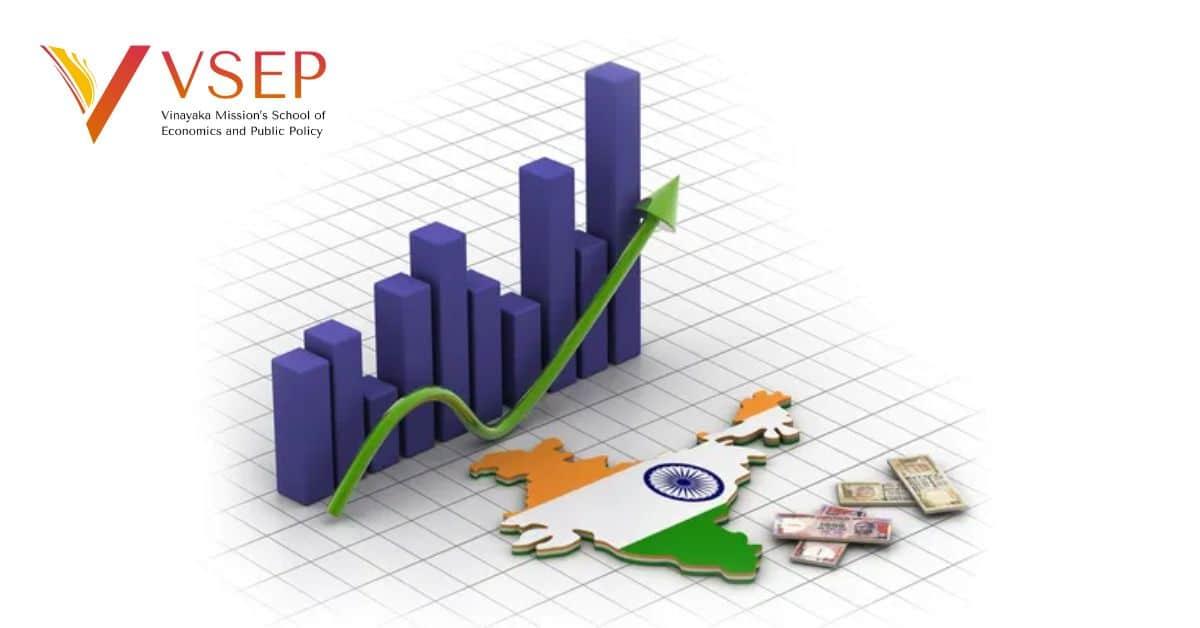Choosing to pursue a Bachelor of Science in Economics is a major academic decision, and understanding the structure of the BSc economics syllabus is key to making the most of the program. This undergraduate degree blends theory, mathematics, and data analysis to shape students into competent economists ready for a wide range of careers or advanced studies. As economics grows more interdisciplinary, the syllabus has evolved to reflect modern demands from industries and policy spaces alike.
For those looking to study at leading institutions like VSEP (Vinayaka Mission’s School of Economics and Public Policy), the curriculum has been thoughtfully crafted to reflect both global academic standards and Indian policy realities. In this blog, we break down the components of a BSc economics syllabus, how it prepares students for the real world, and what makes it stand out.
An Overview of the BSc Economics Syllabus
A typical BSc economics syllabus spans six semesters over three years. It begins with core fundamentals and gradually progresses into specialized and applied areas. The curriculum is usually divided into:
-
Core Papers
-
Elective Courses
-
Practical/Skill-based Components
-
Research/Project Work
This structure ensures that students build a strong theoretical base while gaining practical tools and exposure.
Core Subjects That Build a Strong Foundation
At the heart of any BSc economics syllabus are the core papers that cover major economic principles. These include:
1. Microeconomics
This subject introduces students to individual decision-making units like consumers and firms, exploring topics such as utility, production, cost, and different market forms.
2. Macroeconomics
Macroeconomics takes a broader view, addressing the performance of economies at a national and global scale. Key topics include national income, inflation, unemployment, fiscal and monetary policy.
3. Mathematical Methods for Economics
Mathematics is a crucial tool in modern economics. Students learn about algebra, calculus, and matrix operations to develop models and solve economic problems.
4. Statistics for Economics
Understanding data is fundamental. This subject covers data collection, probability theory, sampling, and inferential statistics relevant for economic analysis.
5. Indian Economy
Studying the Indian economy allows students to grasp development trends, government initiatives, and sectoral transformations in a local context.
6. Development Economics
Focused on global development issues, this subject covers poverty, inequality, population growth, and policy interventions in emerging economies.
Advanced and Elective Topics for Specialization
As the program progresses, students are given the option to choose from a range of electives based on their career interests. Some of the popular topics include:
-
Environmental Economics
-
Financial Economics
-
Public Finance
-
International Trade
-
Econometrics
-
Behavioral Economics
-
Urban and Regional Economics
These subjects offer practical perspectives and help students explore niche areas in economics, preparing them for sector-specific roles or postgraduate programs.
Skill-Oriented and Analytical Training
Modern BSc economics syllabi are no longer limited to classroom theory. There is increasing emphasis on application-based learning. Key additions include:
1. Computer Applications in Economics
Students learn to use tools like MS Excel, R, Python, or STATA for data analysis, economic forecasting, and visualization.
2. Research Methodology
Training in how to design studies, collect and analyze data, and write reports helps students undertake quality research projects.
3. Project Work and Internships
Many programs incorporate fieldwork or internships as part of the assessment. These give students firsthand experience with policy evaluation, economic surveys, or financial market research.
How VSEP Enhances the Traditional BSc Economics Syllabus
At Vinayaka Mission’s School of Economics and Public Policy (VSEP), the BSc economics syllabus goes beyond conventional models. Recognizing the growing need for interdisciplinary knowledge, VSEP integrates public policy, data science, and real-time project learning within its curriculum.
Students are trained not only in economic theory but also in leadership, communication, and ethical policy-making. This well-rounded education model is aimed at producing graduates who are ready to become changemakers in both national and international arenas.
Career Opportunities with a Strong Economics Syllabus
Graduates from a BSc economics program can find themselves well-prepared for a range of professions:
-
Economic and Financial Analyst
-
Research Associate in Think Tanks
-
Policy Consultant
-
Government Services (like RBI, IES, UPSC)
-
Data Analyst
-
Academician or Professor
A well-structured syllabus ensures that students can appear for competitive exams or apply to top institutions for master’s degrees in economics, public policy, or management.
Conclusion: Choosing the Right Program with the Right Syllabus
Understanding the BSc economics syllabus is the first step in choosing the right program. A curriculum that offers a balance of theory, analytics, application, and ethics is essential in shaping students into capable economists for the 21st century.
Institutions like VSEP, with their forward-thinking approach and commitment to excellence, ensure that students not only meet the academic benchmarks but exceed them with real-world readiness. For anyone considering a future in economics, it’s not just about earning a degree — it’s about gaining a meaningful, comprehensive education.

